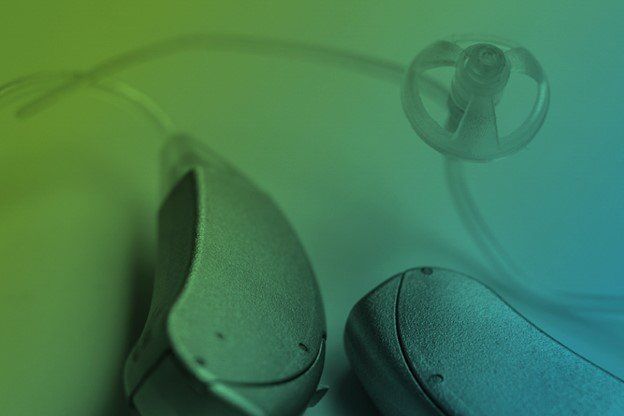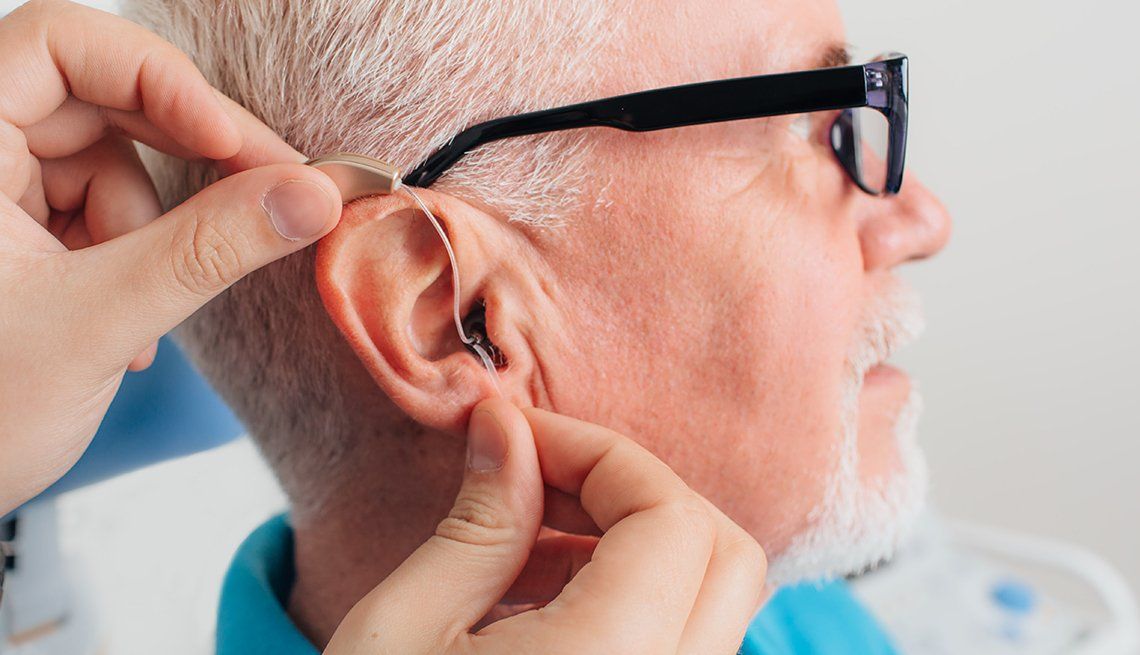At the centre of our approach to compassionate hearing care is taking time to listen and offer as much information as possible. Through this process, we have collected common questions about hearing aids – and questions that are not so common.
The frequently asked questions about hearing aids can be grouped into the following categories:
1. Questions about costs
2. Questions about selecting hearing aids
3. Questions about technology and features
4. Questions about wearing hearing aids
If your questions about hearing aids are not included in this list, book an appointment or contact us today. We’re happy to help address your questions and get you expert answers on hearing aids.
Questions about hearing aid costs
How much do hearing aids cost?
The most common question we hear is about the cost of hearing aids. If you’ve never purchased hearing aids, it is understandable to be unfamiliar with the costs and what is included with your purchase.
Like other wearable technologies, there is a wide range of costs for hearing aids: usually $1,200 to $3,600 per hearing aid ($2,400 to $7,200 for a pair of hearing aids). The top factor that contributes to cost is the level of technology, meaning the hearing aids that have the more advanced and precise usually cost more.
Visit our guide to selecting hearing aids to see the difference between technology levels.
What is included with the purchase of hearing aids?
When you purchase your hearing aids from the Audiology Clinic of Northern Alberta, you get more than just the devices. The cost of your hearing aids also includes:
- Professional programming and fitting
- Warranty and future maintenance
- Support to help you get used to new hearing aids
- Future adjustments and reprogramming
We include these ongoing services because we want your hearing aids to perform as expected through the life of the devices.
Are hearing aids worth it?
Untreated hearing loss can contribute to a range of impacts, including:
- Difficult communication
- Social isolation
- Anxiety, stress and other mental health effects
Sometimes, the impacts are perceivable. But for many people, they are not aware of the effects of untreated hearing loss. For example, people with hearing loss that are working often make less money.
Hearing aids are one option to treat hearing loss and reduce the negative effects. Your candidacy for hearing aids depends on your type and degree of hearing loss, in addition to other factors like lifestyle, work and overall health.
To give you insight into the value that hearing aids will offer your life, our clinicians will walk through what to expect from new hearing aids. We will use the results from your hearing test to discuss how hearing aids will contribute to better hearing.
Our goal is to provide as much information as possible, so you can make a confident decision about the next step.
What funding is available for hearing aids?
There are many funding options for hearing aids that we can help you apply for, including:
- Alberta Aids to Daily Living
- Workers’ Compensation Board
- Veterans’ Affairs Canada
- Non-Insured Health Benefits
- Big Stone Health Commission
- Private Insurance Plans
Questions about selecting hearing aids
Which hearing aids are best for me?
The best hearing aids for you depend on your hearing loss, lifestyle and preferences.
After a hearing assessment, your clinician will discuss the features you prefer and the fit you want. This gives us an understanding of your priorities.
We will match the power you need according to the degree of hearing loss. The goal is to select the appropriate capabilities to assist with your hearing loss and meet your future needs (particularly if your hearing loss is progressive).
From there, our clinicians will consider your lifestyle and preferences. Hearing aids are available with different features and “expressions” of sound. For example, some manufacturers are focused on designing hearing aids that sound as natural as possible. Other manufacturers prioritize technologies that help you hear someone speaking in a noisy environment (even if it doesn’t sound completely natural).
Our team will take the time necessary to understand your preferences and lifestyle. We will review the benefits of various features or technologies, and then outline the options that will be the best fit for you.
What types of hearing loss benefit from hearing aids?
This question is best answered by our clinicians using the results of your diagnostic hearing assessment. The type of hearing loss is only one factor when considering if hearing aids are an appropriate option.
What if I don’t like my new hearing aids?
When you start wearing new hearing aids, they may not perform as expected or you may experience some amount of discomfort. This is normal because your body and brain need time to acclimatize to the new sounds.
Here are tips for adjusting to new hearing aids, and your clinician will be available to address your concerns. We ask that you share with us any issues or problems you face with your new hearing aids.
Our hearing aid trial period lets you take time to understand your devices – all with help from us. Your clinician will be available to adjust your hearing aids and let you know if what you’re experiencing is expected. We will not be satisfied until you are happy with your hearing aids.
If the problems persist and you are not satisfied, you can return them for a full refund. All new hearing aids from the Audiology Clinic of Northern Alberta come with a risk-free trial period.
Questions about hearing aid technology and features
What are the differences in hearing aids?
Hearing aids come in various styles and power levels. Depending on your degree and type of hearing loss, some styles and power levels may be more appropriate for your hearing needs. For example, people with progressive hearing loss may benefit from devices that have adequate power for the life of the hearing aids.
Another difference in hearing aids is the level of technology. This describes how precise, smart or adaptable the hearing aids are.
Each hearing aid manufacturer aims to create the best devices possible. Most manufacturers share similar features and technology levels, but they tend to sound a bit different. Some manufacturers prioritize natural sounds while others focus more on optimizing speech in noisy places. Your clinician can help you choose the best manufacturer for your preferences.
Features like Bluetooth connectivity and rechargeable batteries are available across most devices and not linked the technology level or price. You can also choose between various colours and styles.
Our guide to selecting hearing aids includes more details on the levels of technology.
Which hearing aids have Bluetooth technology?
Hearing aids of all technology levels can include features like Bluetooth connectivity. Some smaller custom styles may not be available with Bluetooth, but this case is rare.
If Bluetooth is important to you, let us know and we can help you find the right device.
Questions about wearing hearing aids
What can I expect from new hearing aids?
Adjusting to new hearing aids is different for everyone and often takes time. Most people adjust to their new hearing aids during the trial period.
As your brain and body get used to the sound signals from increased amplification, you can expect sounds and the physical comfort to get better over time. You may encounter discomfort or exhaustion, but you should not experience pain.
Your clinician will provide suggestions to streamline the process, and we are always available to help if anything unexpected arises.
Do I need to wear hearing aids all the time?
We recommend you wear your hearing aids as often as possible, as long as they are comfortable. It’s important to wear them regularly to help your brain get used (and stay used) to the sounds it receives from the devices.
Do I need two hearing aids?
Your clinician will use the results from your hearing test to recommend one or two hearing aids. For most people, two hearing aids deliver more balanced sounds and a better experience by:
- Aiming to restore hearing loss to normal levels
- Improving balance
- Improving hearing in noisy environment
- Improving localization abilities (so you can better determine where sounds are coming from)
How are hearing aids adjusted?
Hearing aids need to be personalized to the wearer.
We will program your devices when they arrive at our clinic according to your hearing loss, and then we will verify they operate as expected while you are wearing the hearing aids. We also will objectively measure how your hearing aids are functioning using real ear measurements. This process involves testing your hearing aids while they’re in your ear.
Over time, your hearing and lifestyle may change. Your clinician can review and adjust your hearing aids to align with your current needs and lifestyle.
What if I have issues with my hearing aids?
Start by exploring our guide to troubleshooting problems with your hearing aids. If you’re unable to resolve the issue, book an appointment at the Audiology Clinic of Northern Alberta.
Get more hearing aid tips
See our article on top hearing aid tips for suggestions on wearing, using and maintaining your hearing aids.









